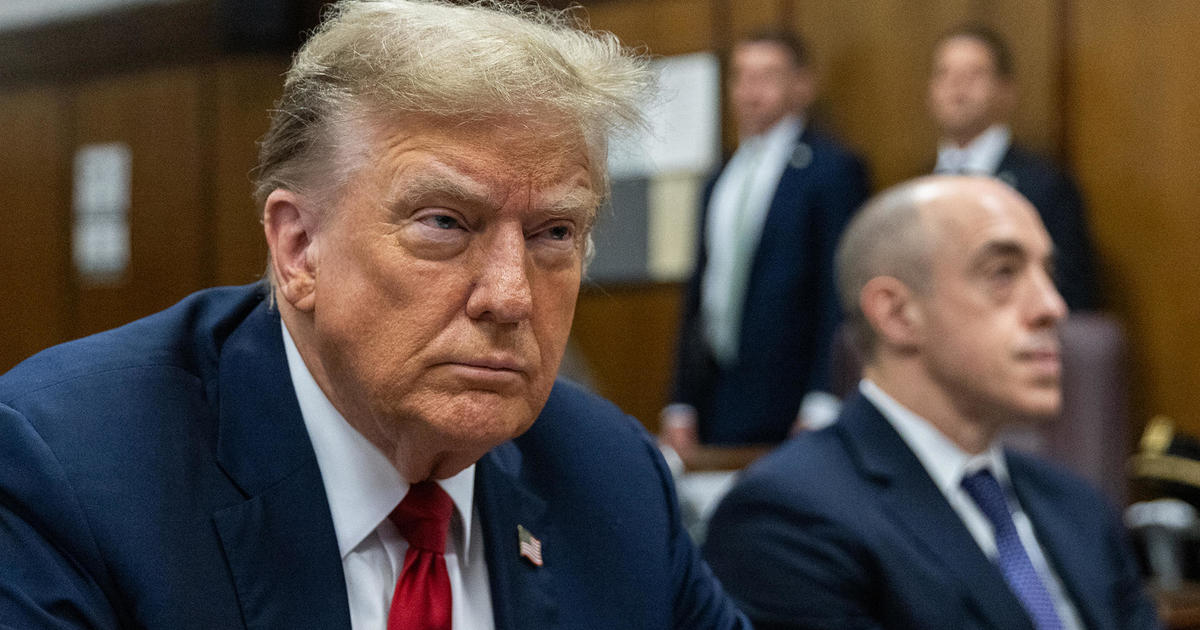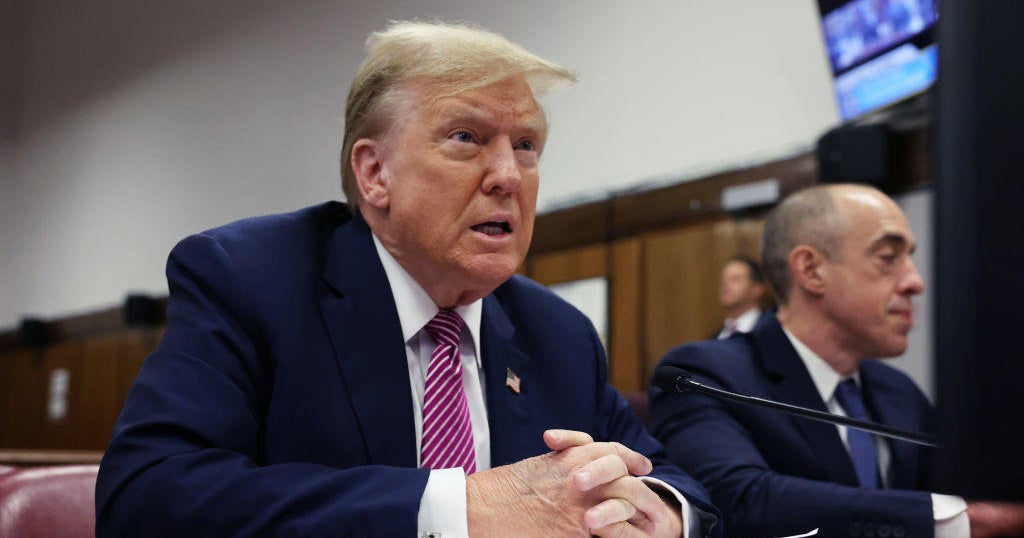Is China the unfair trade villain Trump says it is?
President Donald Trump thinks China has repeatedly sucker-punched the U.S. economy with unfair trade policies. And he plans to air his grievances with the Chinese leader, Xi Jinping, at their two-day summit starting Thursday in Florida. The meeting will be “very difficult,” said Mr. Trump, whose criticism of Beijing resonates with his voter base.
Is China’s trade behavior as wicked as President Trump says? Not quite. In short, it’s not as bad as it used to be and in some regards has improved. But its bias remains pretty blatant, with plenty of one-sided policies and high tariffs.
Mr. Trump’s rhetoric about Chinese trade actions isn’t always accurate or up-to-date, yet China’s leadership does continue to tilt the game board in its direction. So the president has talked about protectionist steps like imposing steep tariffs on Chinese imports to the U.S. as high as 45 percent.
“Protection will lead to great prosperity and strength” for America, he said in his inauguration speech in January, although he and the administration have somewhat softened their tone lately as the Xi summit approached.
China became the world’s second-largest economy ($11.4 trillion), behind the U.S. ($18.5 trillion), mostly by doing its utmost to promote exports -- and to block trading partners, particularly major industrial powers like the U.S., from getting much of a foothold in its fast-growing domestic markets.
Since Mr. Trump’s election, with his calls for crackdowns on China and Mexico, the Chinese regime has sounded conciliatory. At the Davos World Economic Forum, President Xi sang the praises of global free trade and criticized protectionism, which he likened to “locking oneself in a closed room.”
To China’s critics, that’s rich. Rob Atkinson, president of the Information Technology & Innovation Foundation, a Washington think tank, said China believes in free trade rules for the rest of the world -- but mercantilism for itself. Under mercantilism, a nation fosters its economy with subsidies, tariffs and other trade barriers to get a leg up on the competition. “China’s systematic mercantilism represents a threat” to the U.S. and the the world at large, Atkinson said.
Still, there’s a lot of fear that Mr. Trump will get too tough on China and a trade war will erupt that would rattle global prosperity. Imports like consumer electronics would suddenly become ruinously expensive. As Hoyt Bleakley, a University of Michigan professor, put it: “A sudden increase in trade costs is a recipe for a slowdown, maybe a recession, as the higher costs disrupt the supply chain.”
China still sees itself as an emerging nation, even though its economic heft is unequaled by any other country except the U.S., which it hopes to supplant at the No. 1 spot in 2030, if current growth trends continue. Indeed, much of China’s population is poor, and its GDP is spread over four times as many people as the U.S. has. While China isn’t booming at a double-digit pace anymore, it is expanding at an enviable rate: 6.7 percent in 2016, compared to 1.9 percent for the U.S.
In Mr. Trump’s view, the outsourcing of American jobs to China -- or Mexico, India and other places with lower-paid labor forces -- is a tragedy that must be redressed. He has acknowledged this one issue was the key to his election victory. U.S. manufacturing jobs declined 34 percent from 1998 to 2010, during the era of China’s most rapid ascent.
Another sign of an ongoing problem: The U.S. runs a wide trade deficit with China, to the tune of $347 billion last year, according to the U.S. Census Bureau. It’s now half the overall trade gap, an increase from 30 percent a decade before.
Here are the battlegrounds of Sino-American trade relations, which show how China has changed its mercantilistic approach to a degree, but far from what its detractors see as just:
Currency manipulation. This isn’t the problem it used to be, but to President Trump, it’s still an ongoing outrage. Running for office, he pledged he would declare China a money manipulator on “Day One” of his administration. That hasn’t happened.
But he hasn’t backed off his criticism of China for what he sees as deliberately holding down the price of its currency, the yuan. An artificially low yuan makes Chinese wares cheaper in America and American goods costlier there, harming U.S competitiveness.
As recently as February, the president said in an interview with Reuters that China was “the grand champion” of currency manipulation.
Short of tariff punishment, Mr. Trump’s tools to fight back are rather limited. Declaring China a manipulator would, under U.S. law, require Washington to negotiate with Beijing for a year. The goal: Get China to sell dollars and other foreign denominations to drive them down and the yuan up.
If that didn’t work, U.S. alternatives are confined to slapping on a tariff, which Congress has given presidents the power to do unilaterally. China, however, has a history of lashing back at trade sanctions. When the Obama administration imposed tariffs on Chinese tire imports in 2009, China retaliated by taxing U.S. chicken parts.
To be sure, China used to audaciously maneuver to give the yuan an advantage over global competitors. It purchased foreign currencies, especially the U.S. dollar, to shove them higher against the yuan. In the process, it stockpiled enormous foreign currency reserves, reaching almost $4 trillion worth by 2014.
These days, though, any Chinese manipulation is to bolster, not weaken the yuan. Seeking to smooth frictions with the U.S., Beijing has depleted its vast reserves of dollars: The enormous increase in the global supply of greenbacks has pushed down its value, and elevated the yuan by 1 percent this year.
At the same time, the Chinese government has clamped down on its citizens using the yuan to buy assets elsewhere, such as high-end real estate and foreign stocks. That also has acted to keep less of the currency in circulation abroad, and thus scarcer, further adding to its worth.
Will China keep promoting a stronger yuan in the future, or is this just a blip? Maybe it’s for keeps. As a rising international force with investments around the globe, China wants to play nice with others on the currency front. Nevertheless, that doesn’t mean it’s eager to give ground elsewhere.
Tariffs and taxes. Just about all nations impose some kind of tariffs on imports and ladle sales taxes atop them. But the U.S. does this the least, a legacy of helping rebuild countries damaged in World War II and later its mission to bring up emerging ones, such as China. The Chinese Communist-run government had mandated a shift to a semi-capitalist economy in a bid to enhance its people’s living standards.
The combined tariff and tax rate for exports to the U.S. is 9 percent, on average. The tariff rate is around a third of the total, roughly 3 percent. In China, the tax-tariff total is 27 percent (tariff: 7 percent).
In fairness, many other nations charge even higher levels than does China -- such as Germany’s 24 percent, Brazil’s 31 percent and Mexico’s 23 percent. The actual tariffs vary, depending on the type of merchandise. China charges a 25 percent tariff on imported cars; the U.S., 2 percent.
A lot of nations don’t tax exports, and that’s largely true of China. Congressional Republicans are weighing imposing such a system in the U.S, which they call a border adjustment tax. But this proposal has met with fierce opposition from American importers, like the retail industry.
None of the high-tariff nations has anywhere near the size of China’s economy or its potential to become a geopolitical rival of the U.S. For what it’s worth, China used to have much higher tariffs, as much as 40 percent in 1992, but these came tumbling down after it entered the World Trade Organization, research firm Capital Economics noted.
Mr. Trump hasn’t said much about the tariff-tax question. Still, it may come up as the administration pushes to sell more stuff in the often-restricted Chinese consumer marketplace.
Nonmonetary barriers. An even knottier issue is the brace of protections that China has erected to hold down an influx of foreign goods and influence. Cracking this Chinese wall will surely be on the agenda at some point in the Trump administration’s negotiations with the Xi government. For instance, Beijing restricts Americans and other outsiders from investing in state-owned businesses. And when foreign companies seek to link up with Chinese partners, the government often requires them to hand over intellectual property.
During the Trump-Xi summit, few expect a harsh blowup. Just the same, given Mr. Trump’s irascible nature, that’s always possible. In March, China’s second-highest official, Premier Li Keqiang, told reporters that China doesn’t want a trade war, in which nations ratchet up tariffs and other barricades, which risks freezing up the global economy as in the 1930s. Treasury Secretary Steven Mnuchin responded the next day that certain trade relationships must be reexamined to render them fairer for U.S. workers.
A trade war would likely mean much higher prices for American consumers on all manner of goods that are imported. Certainly, China could always take steps to retaliate against the U.S. beyond restoring high tariffs. Beijing is the second-largest holder of U.S. Treasury bonds after Japan. China could dump its $1 trillion in U.S. paper, which would send Treasury prices crashing and U.S. interest rates skyrocketing, slamming everyday Americans.
“The best strategy for the U.S. is to prompt China to open up,” said Saruhan Hatipoglu, head of research firm BERI, a geopolitical research firm. “Not increase restrictions for Chinese goods and investment into the U.S.”



